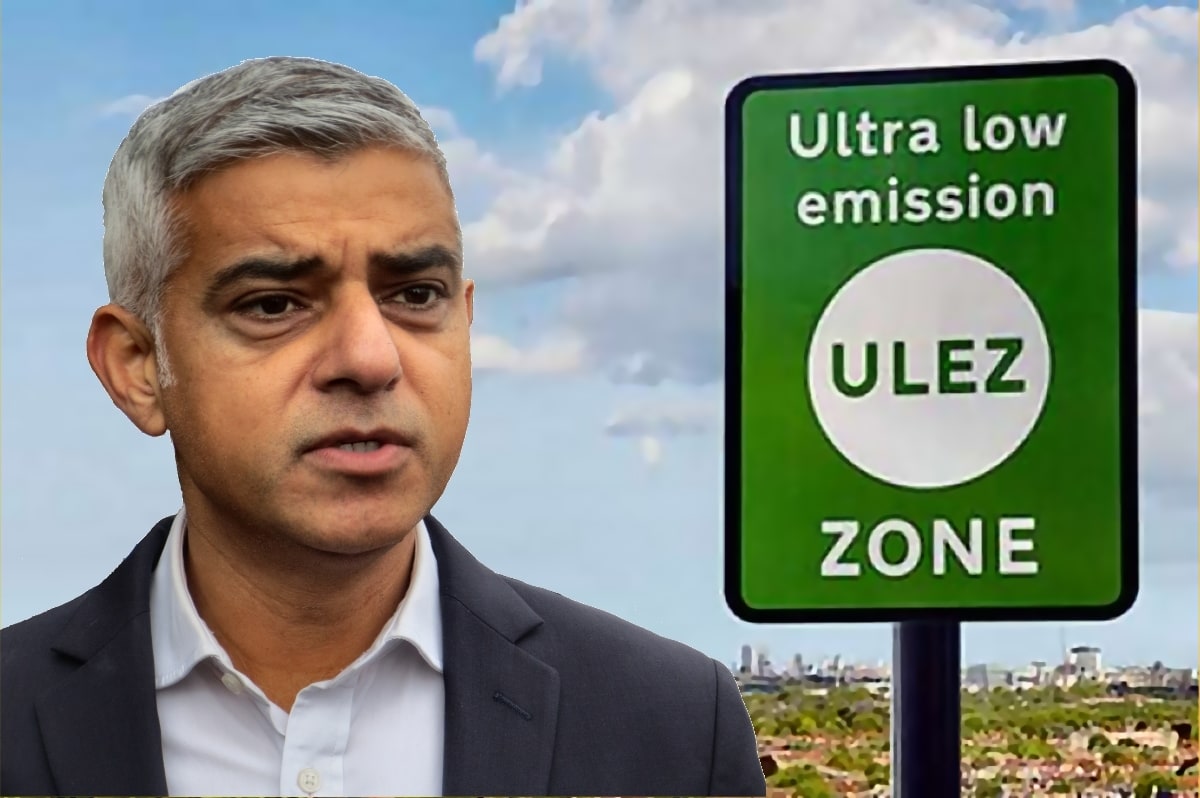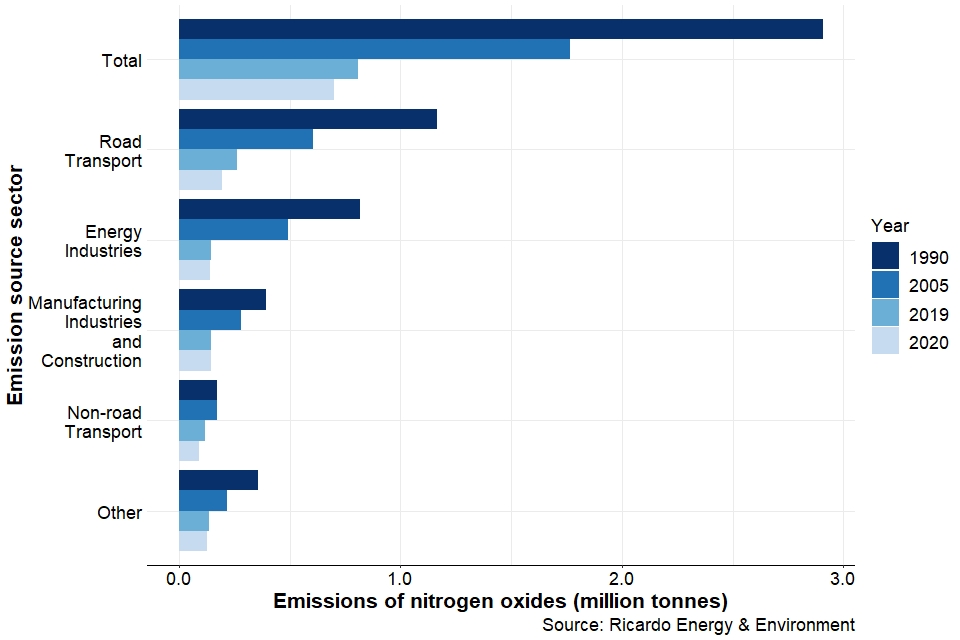Typo. I think he meant Khant! Think about it…..
You are using an out of date browser. It may not display this or other websites correctly.
You should upgrade or use an alternative browser.
You should upgrade or use an alternative browser.
Expanded ULEZ
- Thread starter Mottie
- Start date
- Joined
- 7 Jan 2010
- Messages
- 14,180
- Reaction score
- 4,179
- Country

The 60 plus oyster card is not entirely free. SIL tells me you have to confirm you're still a resident in a London borough every year, and pay a fee, can't remember if it's £10 or £20, either way, still a bargain.Another Khan pocket picking has taken place today.
Anyone over 60 living in a London Borough got an Oyster 60+ travel card, free. Entitled you to travel at any time on tubes, overground, busses and trams in any London borough. Very handy for those over 60’s who were still working. They put a suspension on the times - not before 9.00 on weekdays, to 'protect' people during the pandemic. Only temporary, you understand. Well, apparently not. It’s been such a 'success' that good ol' Khan, the workers champion and son of a bus driver has decided to make it permanent.
"From today, Wednesday 18 January 2023, the temporary suspension of free travel for 60+ Oyster photocard and Older Persons’ Freedom Pass holders between 04:30 and 09:00 on weekdays, which was put in place during the pandemic, will become permanent".
I suppose he knows it’s his last term as Mayor and wants to leave a 'legacy' with the transport system and ULEZ. That legacy being that working class people over 60 who depend on free travel or anyone that relies on an old banger to get to their low paid jobs in a London borough can just **** right off!
I don’t as I got mine nearly 5 years ago however Mrs Mottie has to confirm it every year for a tenner.The 60 plus oyster card is not entirely free. SIL tells me you have to confirm you're still a resident in a London borough every year, and pay a fee, can't remember if it's £10 or £20, either way, still a bargain.
- Joined
- 28 Apr 2004
- Messages
- 8,372
- Reaction score
- 980
- Country

Guess what the rest of us got regarding free travel - SFAIf they need to travel during rush hour they can suck it up just like young working class people. If they're working why should they be subsidised by everyone else.
At least they get their return for free.
Typo. I think he meant Khant! Think about it…..
Thanks. I've got it now! I had wondered whether it was a reference to this.
- Joined
- 31 May 2016
- Messages
- 25,249
- Reaction score
- 5,560
- Country


Mayor Khan excluded 5,000 responses to ULEZ consultation, Conservatives claim - Professional Driver Magazine
Conservative members of the Greater London Assembly are demanding an inquiry into Mayor Sadiq Khan’s plan to extend the Ultra Low emissions Zone into the outer London boroughs. They claim up to 5,000 responses, to the consultation into the scheme mainly opposing the plan, were excluded from the...
 www.prodrivermags.com
www.prodrivermags.com
So its loss in value is probably nothing to do with the ULEZ anyway, it's worthless because nobody wants it. There's been a spike in used values during covid but this is ending. So it's not that prices were normal and now are low, they were very high and are now returning to normality. Anything 12 years old is a bargain banger, it will never be worth much whatever it is.Yes, it's a thirsty car.
What do you expect from a 300bhp monster?
Although, at 70mph on motorways I get 60mpg easily.
Road tax is £360 and it's 65k miles, so well below average.
I'm thinking of keeping it in my front garden and decorate it with slogans against the khant.
Mine's a mere 180bhp, it's bloody good fun to drive. But it's also £30 road tax and 50mpg in the real world, it's ULEZ compliant and it was fairly cheap. Plus it's a decent size, comfy, paractical and fully loaded with pretty much every toy there is. You can get a car that ticks all the boxes with a bit of homework.
The thing is I don't want another car, not even a new one for free.So its loss in value is probably nothing to do with the ULEZ anyway, it's worthless because nobody wants it. There's been a spike in used values during covid but this is ending. So it's not that prices were normal and now are low, they were very high and are now returning to normality. Anything 12 years old is a bargain banger, it will never be worth much whatever it is.
Mine's a mere 180bhp, it's bloody good fun to drive. But it's also £30 road tax and 50mpg in the real world, it's ULEZ compliant and it was fairly cheap. Plus it's a decent size, comfy, paractical and fully loaded with pretty much every toy there is. You can get a car that ticks all the boxes with a bit of homework.
I wanna keep mine but this midget is forcing me and many others to scrap it.
- Joined
- 31 May 2016
- Messages
- 25,249
- Reaction score
- 5,560
- Country

It’s not about power or fuel economy - mine is over 300bhp and compliant. The gfs is 115bhp ish. Does loads to the gallon and isn’t.
There seems no way to make her little 116d with a 2l diesel engine compliant.
There seems no way to make her little 116d with a 2l diesel engine compliant.
There isn't a way of converting it and there never will be. Sell it quick, before the rest of the country works it out. What's the alternative - wait for the revolution?
Actually most of the country doesn't need to care - not much anyway. I live nowhere near one of these zones and have no plans to visit one but, given the choice between ULEZ compliant or not, I made sure it was compliant when I bought a used car earlier this year, just in case and to preserve value in future. But I'm pretty sure the majority outside of major cities don't (yet) consider it a factor when buying, so hopefully its value hasn't been affected much.
But all used cars are dropping in value anyway, this is partly because the covid used car boom is over but also because everyone's worried about money so thirsty ones with big tax bands are definitely going to suffer - this is just economics, supply and demand. So someone with a fuel guzzling used car can't blame ULEZ entirely for its drop in value, it's possibly even irrelevant.
Actually most of the country doesn't need to care - not much anyway. I live nowhere near one of these zones and have no plans to visit one but, given the choice between ULEZ compliant or not, I made sure it was compliant when I bought a used car earlier this year, just in case and to preserve value in future. But I'm pretty sure the majority outside of major cities don't (yet) consider it a factor when buying, so hopefully its value hasn't been affected much.
But all used cars are dropping in value anyway, this is partly because the covid used car boom is over but also because everyone's worried about money so thirsty ones with big tax bands are definitely going to suffer - this is just economics, supply and demand. So someone with a fuel guzzling used car can't blame ULEZ entirely for its drop in value, it's possibly even irrelevant.
From the link I posted on the last page.
ULEZ and Congestion Charging work really well to reduce pollution. But it isn't free.Since 2013, there has been a significant reduction in total NOx emissions across the whole of London and
also in central London. The charts below show the trend in NOx emissions per source. Compared to 2016,
total NOx emissions have reduced by 18% in Greater London, and 17% in central London. The largest
reduction in (tonnes of) NOx emissions is from road transport in both Greater London and central London,
as shown in the graphs below. Road transport NOx emissions reduced by 31% across London, and 43% in
central London, reflecting the impact of the central London ULEZ.
The pace of reductions notably accelerated from 2016.2
Between 2013 and 2016, the change in road
transport emissions in Greater London was a reduction of 14%, therefore the rate of reduction has more
than doubled between 2016 and 2019. A comparison against UK emissions reductions3
show that
nationally, road transport NOx emissions reduced by 10% between 2016 and 2019, far slower than the
reductions achieved in London.
- Joined
- 31 May 2016
- Messages
- 25,249
- Reaction score
- 5,560
- Country

Not when you look at the baseline / overall trend in the uk. In fact a quick look at the data suggests London may have been underperforming. It is true that congestion charging scheme flipped many private hire vehicles to petrol hybrids, but it seems - most just paid the charge.


They included that, nationally 10%, London 17%.Not when you look at the baseline / overall trend in the uk. In fact a quick look at the data suggests London may have been underperforming. It is true that congestion charging scheme flipped many private hire vehicles to petrol hybrids, but it seems - most just paid the charge.

Similar threads
- Replies
- 0
- Views
- 821
- Replies
- 10
- Views
- 1K
D

